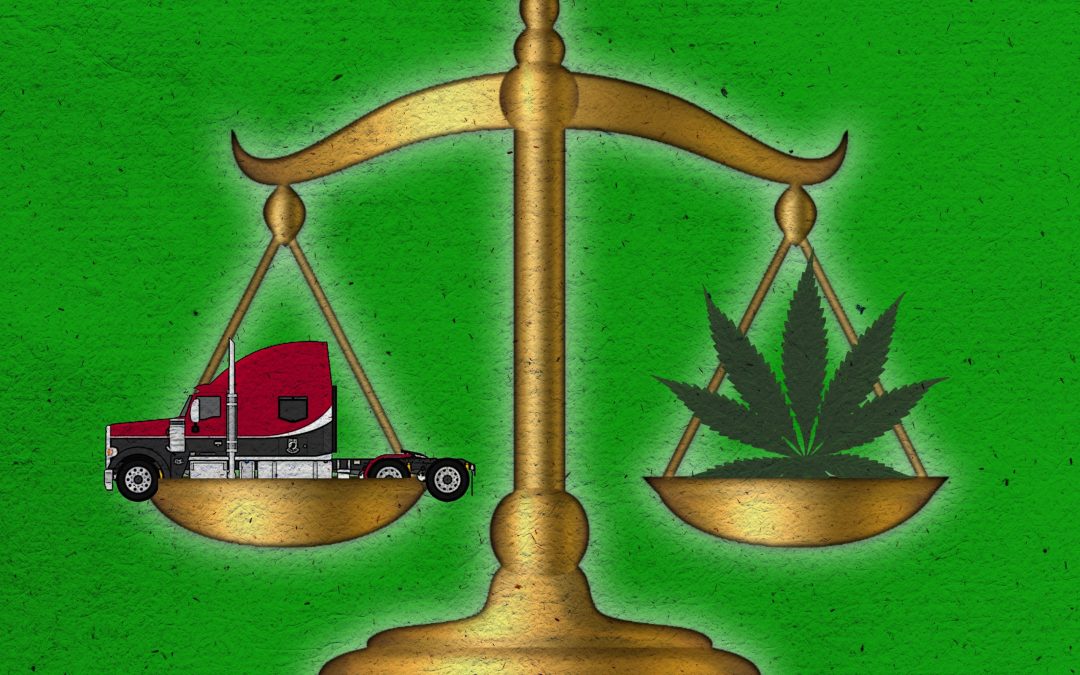Could the trucking industry, long-plagued with high driver turnover and a need for new driver entrants, be missing out on a swath of potential drivers due to its strict no-marijuana-use policies?
It’s an idea open to debate, says attorney Adam Dolan, chair of the cannabis law group for the firm Goldberg Segalla, where he’s also a partner of the trucking and automotive group.
“There’s a societal shift in the way we view cannabis use,” says Dolan, particularly around the use of marijuana for medical purposes. And it’s an issue he contends the trucking industry will likely need to confront in light of the perceived shortage of available truck drivers and, increasingly, as state marijuana laws change.
“By saying no person can use marijuana, even if they have a medical recommendation for it, you’re cutting yourself off from such a large pool of applicants that could provide the industry with much-needed manpower,” Dolan says. Fleets, and the U.S. Department of Transportation, need to “accept the fact that this issue is not going away,” he says. “You’re going to start running into problems.”
If a driver is using marijuana — while not driving — under a doctor’s recommendation to treat a serious illness or as a treatment for recovery from a more serious drug addiction and is banned from driving, he or she could make a discrimination claim under the Americans with Disabilities Act (ADA), says Dolan. That scenario could become even more legitimate should the federal government remove cannabis from its current listing as a Schedule I drug – the most tightly regulated drugs and those perceived to be the most dangerous.
The U.S. Food and Drug Administration has faced increased pressure in recent years to remove cannabis from its current listing as a Schedule I drug and reclassify it. Schedule I drugs include, among many others, heroin, ecstasy and LSD. In that sense, marijuana is classified by the federal government as more dangerous than cocaine, methamphetamine, opium and fentanyl – all of which are Schedule II drugs. Last year, the FDA sought public comments on whether it should reclassify cannabis, opening the door to altering its schedule status.
Dolan says such a reclassification could pave the way for marijuana to be treated more like a prescription medication, such as Xanax and Valium – or even Robitussin, which is classified as a Schedule V drug. If cannabis is recognized as having medical value by the federal government, drivers using the drug under a doctor’s recommendation for medicinal purposes could push back on DOT and fleet policies via ADA, says Dolan.
For example, a fleet can’t fire or terminate a driver for having a prescription for and using pain medication or anti-depressants – many of which fall under FDA scheduled drugs listings.
For the full article: https://www.ccjdigital.com/does-marijuana-prohibition-have-an-impact-on-the-driver-pool/

